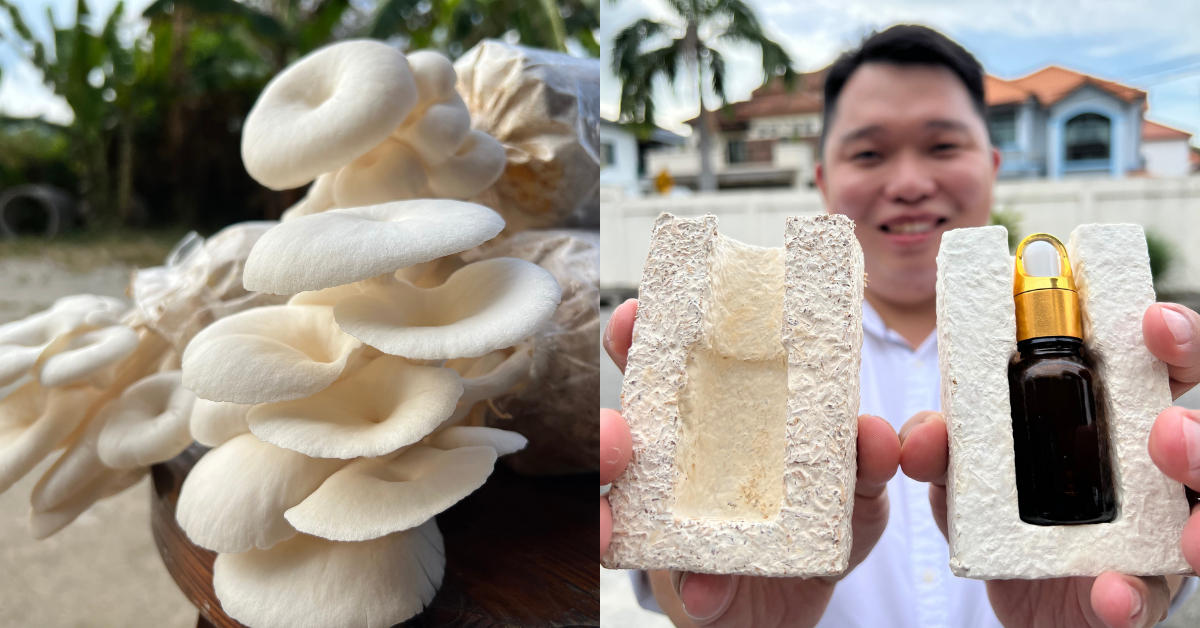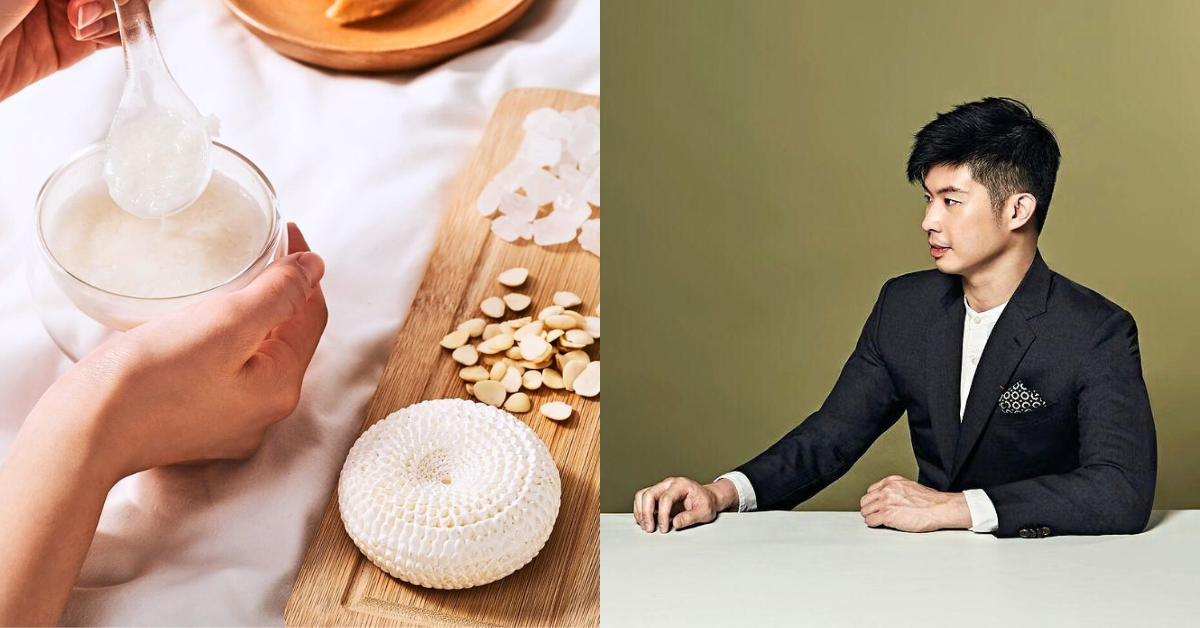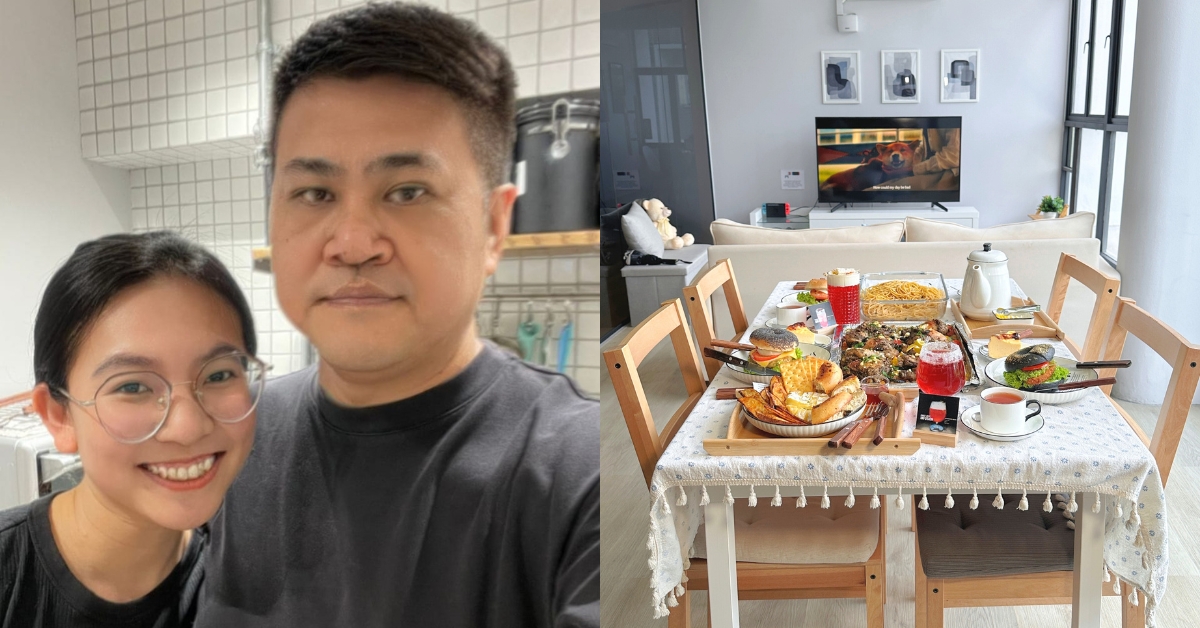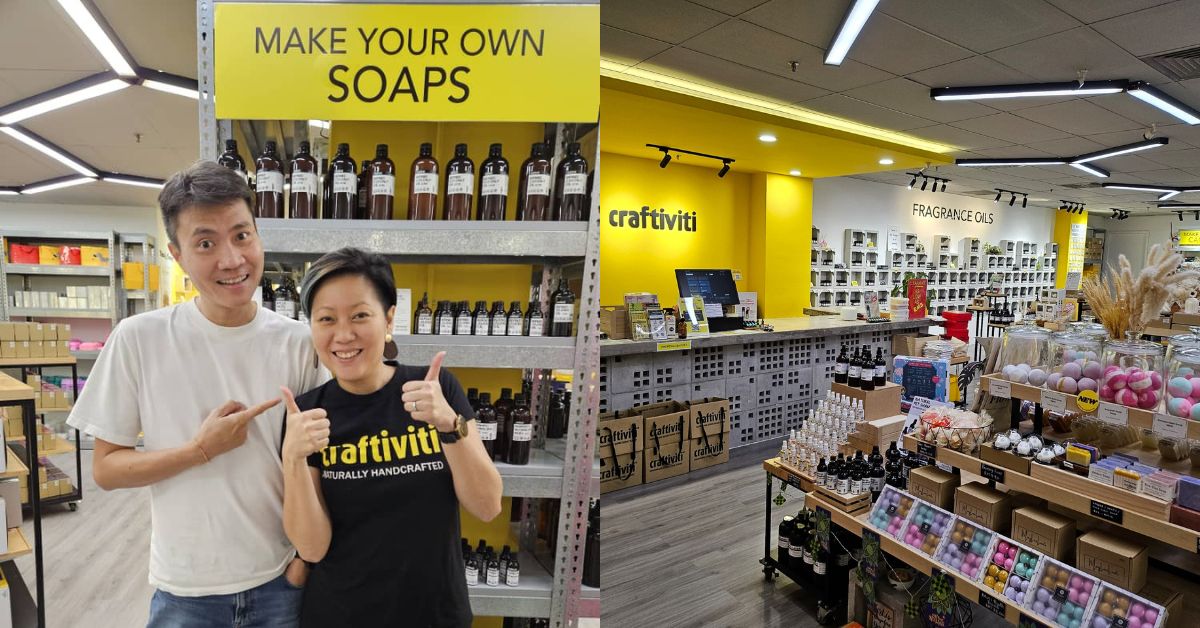Styrofoam has become ubiquitous in the modern age of consumerism, and even synonymous with packaging. But containing toxic chemicals such as benzene and styrene, which aren’t biodegradable and can linger for up to 500 years, it’s not just bad for the environment, it’s also long been known as a hazardous substance and has many ties to cancer.
This is why Boey Tze Zhou, the founder of Eko Agro Biotech, saw an opportunity to use his mushroom farming waste as an alternative to styrofoam.
Finding his niche
Since high school, Boey has held a firm belief that agriculture will endure regardless of the economic conditions. It honours the cycle of life and keeps everyone afloat.
“One day, when I was attending a tuition class, my teacher mentioned that agriculture would never be a sunset industry, as everyone must eat all the time,” he said. “This statement inspired me and I decided to further my studies in an agricultural field after high school.”
“However, I wasn’t sure which crop I should specialise in during that time.”
His options were limited, because Boey disliked the idea of working under the scorching sun, a requirement for many crops and even fruits.
Then during his time at a matriculation college, his best friend asked him out of the blue, “Why not mushrooms?”
“I immediately searched on Google and shouted: YES! I FOUND IT!” Boey exclaimed. This was what he had been looking for all along. It met all of his requirements, like working indoors in a clean and cold environment.
This influenced his decision to study agricultural science at UPM, and so his journey in growing mushrooms began.
More than just selling edible mushrooms
After graduation, Boey started a small-scale mushroom farm in a corner of his father’s small factory with RM20,000 accumulated from his savings, a prestigious award he received from the Anugerah Pelajaran Diraja at his graduation, and from his parents.
When he gained more confidence, he was able to acquire a plot of land in Juru, Penang, from the state government of Penang in order to launch a mushroom farming project.

“This cost us about RM800,000, with my eldest brother being the investor,” said the mushroom grower. “We are mainly growing white and grey oyster mushroom varieties. These have the highest demand of varieties in Malaysia.”
Presently, nine years down the road, Boey was happy to report that he’s built a thriving company that has become one of the main suppliers of oyster mushrooms in the northern region of Malaysia.
However, as the company continued to produce more mushrooms for human consumption, he realised that the amount of agricultural waste generated by mushroom cultivation was also substantial.

Most mushroom growers usually encounter the same issue whenever a batch of mushrooms is ripe for harvest. Previously, Boey usually used his mushroom waste as compost for banana trees.
But, what if there was a more efficient way to recycle it?
Saving the environment with fungus
While Boey was studying at UPM, he came across information regarding the use of mushroom waste as a cushioning material for product packaging. Unlike styrofoam, mushroom packaging consists of 100% biodegradable and renewable material that can be disposed of in garden beds and flower pots.
It grows in a lab in only eight days, and absorbs into the soil in under two months.
“It truly inspired me that mushrooms are not just food, but we can create a lot of good and greener products out of it,” said the founder.
In the United States, commercialisation of the concept began roughly thirteen years ago. Leading brands, such as Dell and Ikea, have adopted the method as a way to greenify their brand image.
The material is known to be entirely natural, lightweight, durable, and inexpensive to produce, making it an attractive and cost-effective alternative to materials derived from fossil fuels.
After several years of his own R&D, Boey finally found a way to convert his mushroom waste into mushroom packaging, including finding a holy grail formula as a catalyst to enhance its growth.

Mycelium, the scientific term for mushroom roots, is infused into recycled sawdust during the procedure. It acts as a natural superglue that binds and holds together organic materials.
Within five days of combining the byproducts (including the secret ingredient), the mycelium will have completely colonised the entire container, which can be shaped to accommodate various packaging needs. Three additional days are required for the substance to dry and solidify further.

A mission to replace styrofoam
The entrepreneur believes that businesses in Malaysia and ASEAN countries will look for greener alternatives in the future when the governments regulate their laws to reduce the use of plastic and polystyrene.
“This is where they can make their products outstanding among other competitors, and this can actually upgrade their brand image by proving to consumers that they care about the environment,” he explained.
According to Boey, his mushroom packaging (called MycoPacks) has a density of 0.18gcm (grams per cubic metre), which is approximately five times lighter than styrofoam, whose densities range from 0.96gcm to 1.05gcm. This could possibly help businesses with shipping issues, if the MycoPacks are more durable in the future.
He also believes that the cost of using mushroom packaging is another attractive aspect for business owners, projecting that profit margins are anticipated to increase slightly compared to when styrofoam is used.
The future of mushroom packaging
The MycoPacks that Boey formulated can accommodate items weighing less than one kilogram, which is considered light.
“We are co-operating with a few scientists from UiTM to increase the strength of mushroom packaging,” he affirmed. “We are working hard right now as there are a few furniture exporting companies looking to replace their styrofoam edge protectors when shipping to Europe and the US.”
The mushroom enthusiast believes that eventually, developed nations in Europe will begin phasing out the use of styrofoam and may one day ban it entirely.
To date, Boey has secured only one client who sells essential oils. “They are ordering 2,000 MycoPack every month,” he shared. “We customise based on [the shape of] their essential oil bottle.”

But it’s only been a month after all, and Boey expects that the number of clients will continue to rise in the coming months. The company is talking with three other brands about the design of the moulds, prototyping, testing, and other things.
Currently, MycoPack’s contribution to the company’s total revenue is estimated to be less than five percent. The majority is still generated from edible mushroom sales.
In the bigger picture, Boey aspires to pioneer this biotechnology in Malaysia and even Asia in order to help other businesses. “We are not only trying to replace styrofoam, but also paper and cardboard packaging,” he also envisioned.
Over the next few years, Eko Agro Biotech plans to initiate its R&D project on mushroom leather, which is believed to be a greener alternative to animal leather.
This game-changing technology has the potential to alter our way of consuming products. Additionally, it brings advantages that the planet will likely appreciate. The outcomes are minor, but they will eventually lead to a greater impact that benefits us in the coming decades.
Boey and Eko Agro Biotech still have a long way to go before they gain recognition for the work they do, but the entrepreneur’s passion and belief in his products will be important elements in taking them far.
- Learn more about Eko Agro Biotech here.
- Read more articles we’ve written about Malaysian startups here.
Featured Image Credit: Boey, the founder of Eko Agro Biotech









